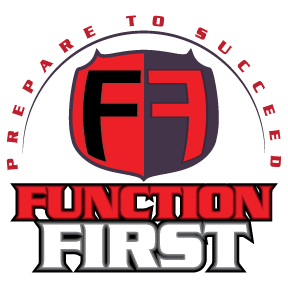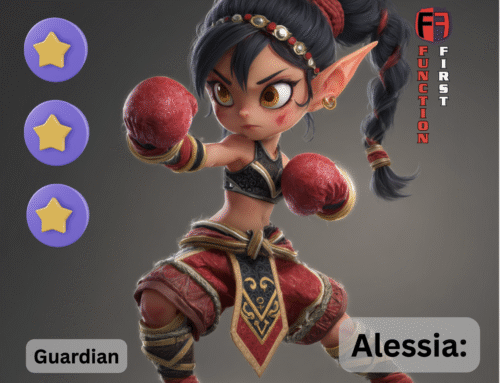🥋 Masculinity & Martial Arts: “Man Up, Buttercup”
There’s a lot of talk in martial arts about resilience, toughness, discipline, and standing up for yourself — and rightly so.
Those qualities matter. They build strong, capable people who can face life’s challenges head-on.
But here’s the part that often gets left out:
What about vulnerability?
What about healthy masculinity?
What about boys bonding with boys — not through competition or bravado, but through genuine connection?
What about overcoming the cultural norms that tell young men to bottle everything up?
Teaching Strength and Vulnerability
At Function First Martial Arts Lincoln, we believe martial arts — when taught properly — can develop both strength and sensitivity in young boys.
It’s not just about learning to fight; it’s about learning to feel, to trust, and to connect.
I’m reminded of an old cartoon, Moschops, where a dragon would show up for “fierceness lessons.”
That image stuck with me — the idea that toughness can be taught.
But so can vulnerability. And it should be.
Breaking the “Man Up” Cycle
Growing up as a boy comes with pressure.
Pressure to man up, toughen up, don’t cry, don’t show weakness.
And that pressure doesn’t just come from friends — sometimes it comes from parents too.
We all know the insults boys get when they step outside the norm.
Choose ballet, play an instrument, show emotion — and someone’s bound to call you a name.
“Gay boy” still gets thrown around, as if caring, expressing, or creating makes you less of a man.
It’s lazy thinking, but it’s cultural — and it’s still far too common.
Boys grow into men who struggle to bond deeply with other men.
We see it everywhere: men who bottle things up because being vulnerable feels unsafe.
That’s not strength — it’s emotional isolation.
What Martial Arts Can Teach Boys About Connection
Here’s where martial arts can make a difference.
Take Brazilian Jiu-Jitsu, for example — it puts boys (and men) in close physical contact with each other constantly.
At first, they might joke or feel awkward.
But over time, that fades. They realise the closeness, the humility of tapping out, the act of losing gracefully — these are all human experiences, not gendered ones.
We don’t punish the awkwardness. We educate through it.
Soon, they understand that being in close, vulnerable positions isn’t strange — it’s part of learning, part of growing, and part of connecting.
Over months of training, that awkwardness turns into respect and empathy.
They’ve been humbled hundreds of times, hugged, tapped, choked, laughed, and encouraged.
They’ve experienced safe physical connection — something the modern world sorely lacks.
Disconnection is like pulling a tree up by its roots; we wither without human contact.
On the mats, we plant those roots again.
Building Culture Through Vulnerability
After a year of Jiu-Jitsu, a boy who’s trained in that kind of environment reacts differently to the world.
If someone mocks him for doing ballet or music, it bounces right off.
Why? Because he’s confident in himself. He’s connected. He knows what real strength feels like.
We also deal with tears on the mats — and we treat them as a teaching moment, not a weakness.
If a child cries, we don’t say, “suck it up, buttercup.”
We sit with them. We explain that crying is normal.
We might even get them laughing through the tears — and that’s when the real lesson lands.
Soon, everyone understands this is our club culture:
We don’t mock.
We support.
We help each other grow — on the mats and off.
Culture Is King
At Function First, we’re proud of the culture we’ve built.
It’s one where strength and softness coexist, where boys can learn to fight and to feel, where vulnerability is not weakness — it’s wisdom.
As we always say:
“On the mats as off — that’s who we are.”
Because the real revolution isn’t out there.
It’s internal.
It’s cultural.
It’s happening right here, on our mats, every single day.
Culture is king. And the revolution starts within.
Peers don’t mock, peers encourage and support each other, and the fact that nearly all of us will shed a tear at some point in front of everyone, we build a culture of showing vulnerability, and that’s huge for young men and boys.



